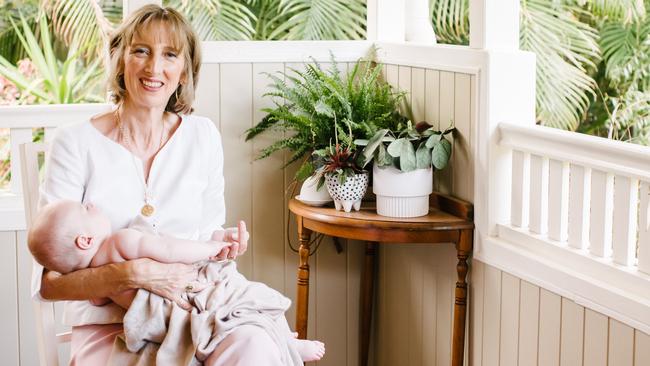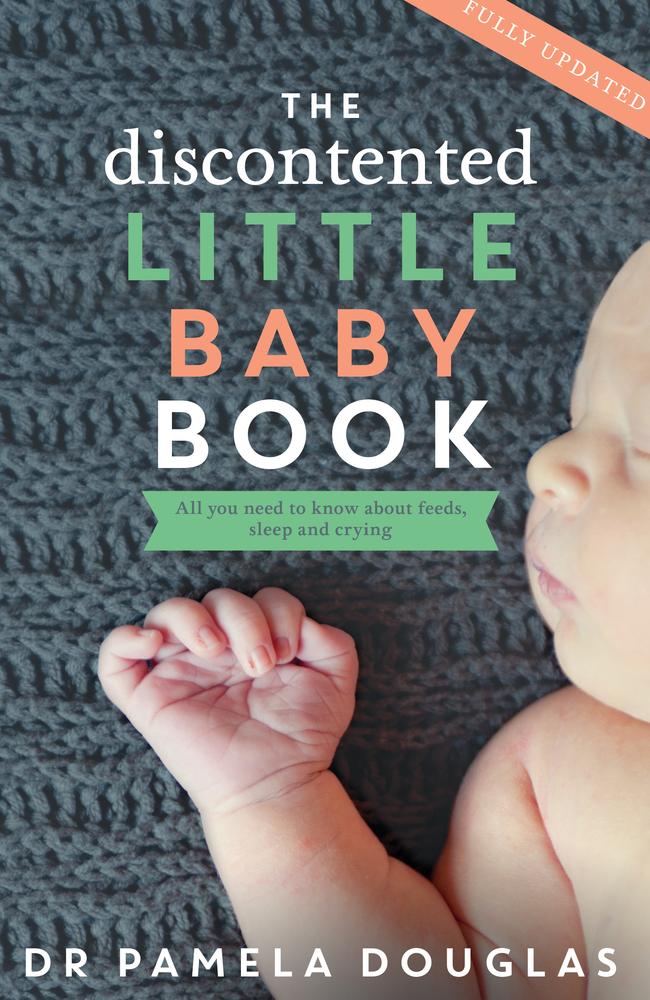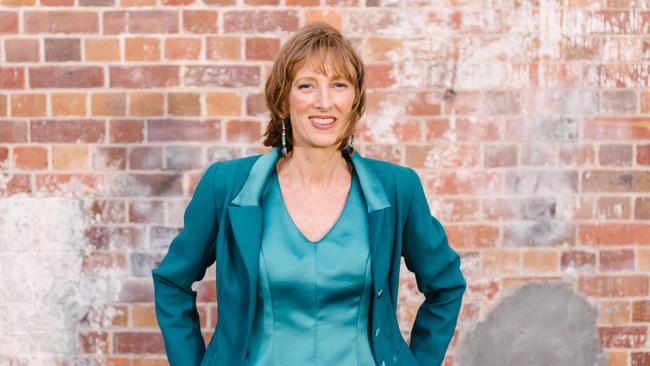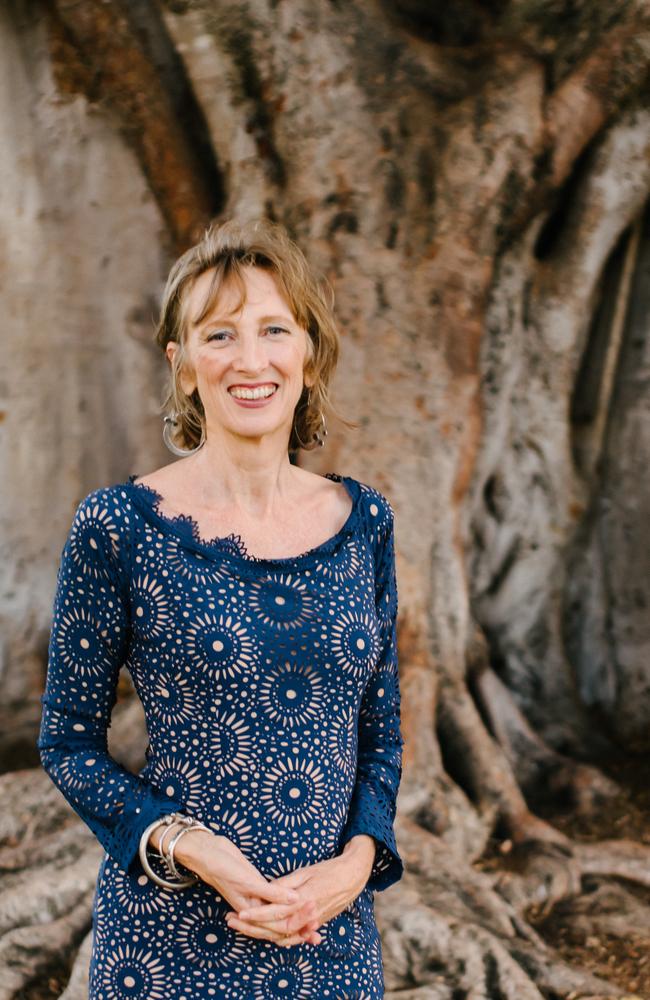Baby whisperer on why sleep training babies doesn’t work and the lies parents are told
A Queensland doctor with 20 years of research in the field of unsettled infants has spoken out about the “unhelpful advice” plaguing sleep-deprived new parents.
QWeekend
Don't miss out on the headlines from QWeekend. Followed categories will be added to My News.
A crying, fussing, fretting, grizzling baby can render even the most relaxed parent into a state of exhaustion and helplessness.
Is the baby overstimulated?
Should he/she be breastfed on demand or kept to a strict schedule? Should the baby be left to self settle or allowed to fall asleep at the breast? Is it a problem with reflux or an allergy or tongue tie? Perhaps a visit to the chiropractor is needed.
New parents are inundated with a minefield of advice and it’s easy to feel overwhelmed and despairing, especially when nothing seems to help. GP, researcher and baby care expert Dr Pamela Douglas has seen it all.

Douglas, 61, has nearly 35 years of clinical experience and 20 years of research in the field of unsettled infants. She is also the founder and medical director of Possums & Co and the Neuroprotective Developmental Care (NDC) programs that offer holistic and evidence-based support of breastfeeding, baby sleep and cry-fuss problems, and parent mood.
She has operated her Possums Clinic in Brisbane since 2011 and there are now hundreds of health practitioners – a mix of GPs, lactation consultants, midwives, child health nurses and allied health professionals – undertaking NDC training across Australia and overseas.
Flipping much of the popular advice parents receive “upside down”, Douglas, who has authored more than 30 international publications in the fields of crying baby, breastfeeding and infant sleep research, has updated her 2014 book The Discontented Little Baby Book.

Douglas says it is clear families of babies with cry-fuss problems can’t be helped with a one-size approach but, unfortunately, this is usually what happens.
Health professionals “wear the lens of one particular discipline” (such as lactation science, behavioural psychology or medicine) and babies are overdiagnosed and overtreated.
Health professionals and patients also routinely over-estimate the benefits of intervention – be it with pharmaceuticals, maternal diets, frenotomy (treatment of tongue tie) or complementary therapy – and underestimate the possibility of side effects.
Douglas is the first to admit modern maternal and baby medicine is pretty incredible. It saves countless mothers from injury and death in childbirth, it stops infants succumbing to disease and infections.
But while medical progression over the generations has been vast, she says there is still so much to learn in terms of holistic or a “whole ecosystem” care approach for mothers and their babies.
“There’s so much unhelpful advice out there for families who have just had a baby,” Douglas says. “So much information is not evidence based and it can really worsen a family’s worry about their baby.
“It’s a huge problem. The care of women and their babies across the domains of breastfeeding, infant sleep, cry-fuss problems and how that all interrelates with that woman’s emotional wellbeing … this is a whole area that is still a research frontier.”
Douglas’s updated book, out this week, explores issues including: why babies cry and how much crying is normal; why spacing out feeds can create problems; how to get breastfeeds right from the beginning and how to bottle feed in the healthiest way possible; “sensory boredom” and how settling practices such as placing babies in quiet rooms during the day can exacerbate crying problems; and strategies to help manage the “worried thoughts and feelings” that happen when your baby is crying, fussing and night waking.
She also includes the latest information on gut microbiome and the use of probiotics for crying babies.

Douglas says that at the very heart of her NDC and Possums programs is the desire to “grow joy in early life”.
“We know that enjoyment of your baby is really good for that little person’s lifelong mental health and sets up secure psychological attachment,” she says.
“If we want to grow joy in early life, then as health professionals, we need to be able to help parents when problems arise in breastfeeding or the baby crying or severe sleep deprivation. We’ve got to be right at the cutting edge in terms of evidence-based support for these areas of challenge.”
Douglas points to a trend of “worldwide overdiagnosis” and treatment of tongue tie, gastro oesophageal reflux disease and allergy in babies.
Parents are also commonly told to “sleep train” their babies despite numerous studies showing it doesn’t decrease night waking.
“Babies’ sleep is incredibly biologically variable – there are newborns who only need nine hours total sleep in a 24-hour period and who might only sleep for 10 minutes here, 10 minutes there. This is absolutely normal,” Douglas says.
“Other newborns have 18 hours of sleep in a 24-hour period and this is absolutely normal also.
“I offer parents a new way of making sense of sleep. It makes life more enjoyable, more manageable and you don’t need to let your baby cry. For example, babies have a biological hunger for rich and changing sensory stimulation – the need for rich and changing environmental input or sensory nourishment.
“Inside our homes are actually really low sensory for babies and they start to dial up and get fussy and cry inside a home just because there is not enough going on to meet their sensory needs.
“But families are more often told, ‘Don’t let the baby get over tired or over stimulated’. It’s really outdated.”

Douglas, of Moorooka, in Brisbane’s south, started to practice as a GP in 1987. Her first job was at the Aboriginal and Islander Community Health Service in Brisbane, which she found was an important influence professionally and personally.
After the birth of her two children, Emma, 30, and Tom, 29, she became very interested in breastfeeding support and qualified as a lactation consultant in 1994 (though, she hastens to add, she is non-judgmental about how babies are fed). She now also has four stepchildren, and “a big bunch of grandchildren”.
Douglas completed a PhD in Women’s Studies and Creative Writing through The University of Queensland in 2012 and is currently an associate professor (adjunct) with the School of Nursing and Midwifery at Griffith University and a senior lecturer at the Primary Care Clinical Unit at UQ.
Since 2018, she has worked as a GP exclusively with parents and babies at her Possums Clinic at East Brisbane (formerly at Greenslopes). She is also writing another book, due to be published next year, titled Breastfeeding Stripped Bare.
Douglas dedicates The Discontented Little Baby Book to her step-great-great-great grandmother Elizabeth Grimes, a stepmother to seven young children and biological mother to another four, who travelled from England to Brisbane on the boat Chaseley in 1849.

She died after just eight years in the colony, in 1857, aged 32, of puerperal mania – “insanity of pregnancy, parturition and lactation”.
“Puerperal mania was a term used in those days for a kind of psychosis or delirium,” Douglas says.
“But whether she died from septicaemia from mastitis or abscess, or a nervous breakdown, post natal depression or she suicided, we don’t know.
“Here we are 160 years or more later down the track and even though the medical profession has done an amazing job with maternal and infant mortality, we still haven’t got our heads around getting women and their babies in sync hormonally and emotionally.
“There is a revolution, a whole paradigm shift that needs to happen. It’s not prioritised in the health system. And that’s where I want to make my contribution to change.”
The smart way to keep up to date with your Courier-Mail news




